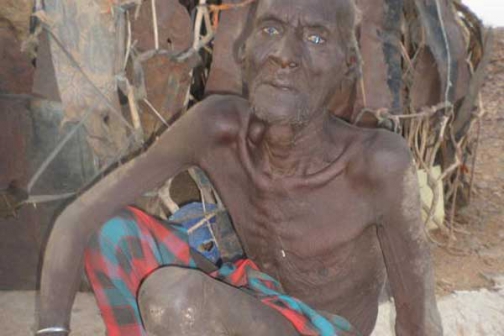×
The Standard e-Paper
Join Thousands Daily

Ekornop Lotieng lays prostrate in his compound at Nakulumei village, Turkana County. Pangs of hunger have taken a huge toll on him, with no end in sight.
Lotieng, 65, has not eaten for several days and is too weak and emaciated to walk in search of food or water.